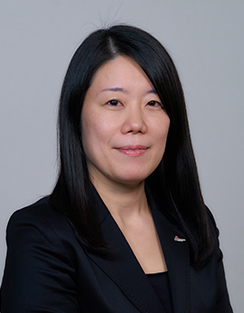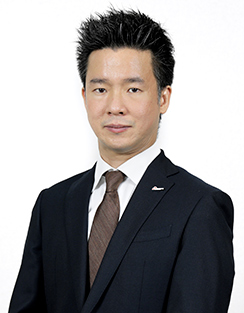Messages from the President and the General Director

Message from the President of MSF Japan
Stay interested in humanitarian aid close to you
What kind of people is it who come to be in need of medical and humanitarian assistance? Are they somehow fundamentally other? Of course not. Some of us just happen to be born in countries with political instability, or in the middle of a conflict, or exposed to a disaster that puts life under threat. It is this sense of shared humanity and unequally distributed danger that never ceases to stand out in Médecins Sans Frontière’s (MSF) field activities. It never escapes us that geopolitical circumstances could change at any moment, reversing the role of aid giver and the receiver of aid.
From a young age it has struck me deeply that some of us suffer for no other reason than they were born in a war zone; that their lives were placed in a double danger, firstly from direct harm, and secondly from a lack of access to adequate medical care. Those of us who do not live our lives under the shadow of war and disaster are fortunate not only because we need not continually worry about the immediate safety of ourselves and our families, but also because we are in the position to render help to others; because we are in the position to do something.

Dr. Yuko Nakajima
2022 marked MSF’s 51st year and MSF Japan’s 30th. Sadly, the need for medical humanitarian aid around the world has not decreased in the intervening years. MSF has grown in concert with the complexity of the times and the ever-changing global situation. As an organization, we are also in the midst of a large-scale transformation to decentralize decision-making in an effort to deliver more patient-centered care in the field.
With your support, MSF will continue to make important contributions to the world community. As MSF Japan President, I look forward to working together with MSF Japan supporters to cultivate a movement capable of making important contributions to MSF activities around the world.
Humanitarian aid begins with the simple desire to help people in need. It is rooted in a concern for others and a readiness to think together about what can be done. It is my strong hope that this impulse to participate in humanitarian aid will continue to grow, and that society as a whole will become kinder and more committed to helping those of us in need.
Dr. Yuko Nakajima is an Emergency Physician and Anaesthetist. After graduating from Tokyo Metropolitan Kokusai High School, she obtained her medical degree from Sapporo Medical University. She completed a transitional internship at the US Naval Hospital in Okinawa, trained in Anesthesiology and Emergency/General Medicine at Urasoe General Hospital, and worked as staff at the Anesthesiology department at Tokyo Metropolitan Bokutoh Hospital. After passing the USMLE (US Medical Licensing Examination) and obtaining her ECFMG (Educational Committee for Foreign Medical Graduates) she went on to complete an Emergency Medicine Residency at Yale University and gain board certification in Emergency Medicine. She then completed an EMS (Emergency Medical Services)/Disaster Medicine Fellowship at UC San Diego. In 2017, she joined the faculty of the Department of Emergency Medicine at Emory University as an Assistant Professor. In the same year, she became board certified in EMS. Along with her clinical duty, Dr. Nakajima currently serves as Medical Director for Metro Atlanta Ambulance Service.
Dr. Nakajima started working with MSF in 2009. She is currently based in the US . She was elected to the board of MSF Japan in 2017 through 2020, co-served as vice president from 2019 to 2020 before being elected president of MSF Japan in March 2022.
Message from the General Director of MSF Japan

Shinjiro Murata
Seeking Global Support for Humanitarian Assistance from Japan
Since its establishment in 1971, Médecins Sans Frontières/Doctors Without Borders (MSF) has maintained its operational independence by ensuring its financial independence from political actors. This has allowed us to carry out our activities based on the humanitarian principle of "delivering aid to people in need, irrespective of race, religion, creed or political convictions." This principle has been and will remain unchanged.
Since joining MSF in 2005 as a staff member on an overseas field assignment, I have directed and supervised several projects in places such as Syria, South Sudan, and Yemen, in line with this humanitarian principle. In these projects, staff of different nationalities and ethnic backgrounds came together with the shared goal to assist people in need of emergency care. In recent years, however, attacks on medical facilities and restrictions of aid to civilians on the frontlines of conflict have been justified and legitimized in the name of counterterrorism. As a consequence, many lives were lost which otherwise could have been saved. The problem is that these acts are carried out by various states (governments) obliged to comply with international humanitarian law. I am concerned that the 21st century becomes an era in which we see medical ethics and humanitarianism at stake.
Therefore, I would like more Japanese people to be aware of the humanitarian principles of independence, neutrality, and impartiality, and to contribute to MSF’s operations around the world from Japan. I am convinced that this contribution will lead to saving as many people as possible in need of critical medical care around the world.
Shinjiro Murata, a graduate of Shizuoka University, worked in a global IT company before joining MSF in 2005. In 2012, he was appointed as the first Japanese head of mission, responsible for projects in countries including Syria, South Sudan and Yemen. He was leading negotiations on aid activities at the national level of the respective countries. He has spent more than ten years in the field. In summer 2019, Shinjiro Murata was accepted to Harvard Kennedy School as a John F. Kennedy fellow where he developed advocacy strategies to halt attacks on health care in conflict zones in order to restore and maintain access to health care for people in need. He holds a master’s in public administration (MPA). In August 2020, he became the first Japanese director of MSF Japan.
- ©MSF
